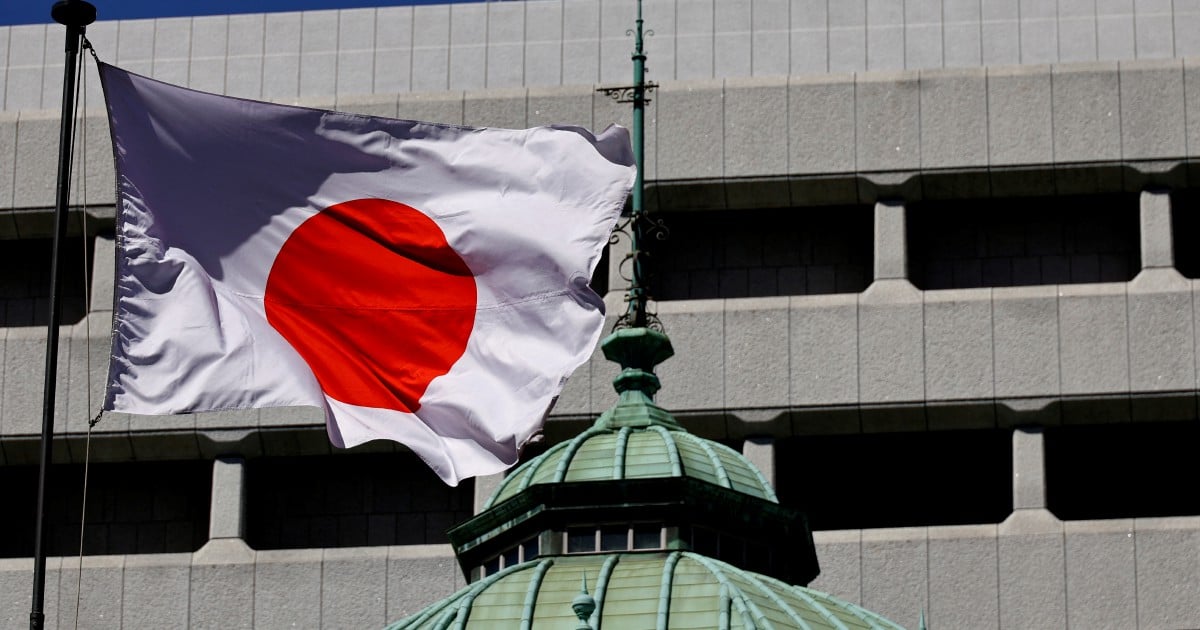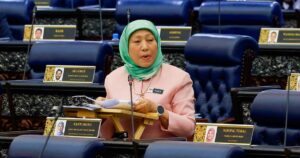TOKYO: The United States and Japan reaffirmed their commitment to “market determined” exchange rates, while agreeing that foreign exchange interventions should be reserved for combating excess volatility, according to a joint statement released on Friday.
The latest agreement also notably made no new demands by the Trump administration on Tokyo around foreign exchange or other matters, a point analysts say will give Japan some relief as it navigates tricky bilateral ties with Washington.
The US Treasury Department and the Japanese Finance Ministry “reaffirmed that exchange rates should be market determined and that excess volatility and disorderly movements in exchange rates can have adverse implications for economic and financial stability,” the statement said.
They agreed that foreign exchange interventions “should be reserved for combating excess volatility and disorderly movements in exchange rates,” it added.
They also reconfirmed they had avoided exchange rate intervention to gain competitive trade advantages, an implicit approval that massive yen-buying Japan conducted in 2022 and 2024 was not unfair currency manipulation.
The statement mostly reaffirmed existing foreign exchange commitments agreed among the Group of Seven major economies. There had been some concern in Tokyo that the US would call on Japan to prop up the yen in trade negotiations.
Finance Minister Katsunobu Kato told reporters that the two countries decided to issue a joint statement on foreign exchange to reflect the discussions that he and US Treasury Secretary Scott Bessent have had as part of broader trade negotiations.
They chose this timing as the two countries this month published a separate joint statement clarifying details of their tariff deal, Kato said.
The tariff negotiations with the United States have been led by Economy Minister Ryosei Akazawa, while the two countries had agreed that any discussions on currency rates have to be held between Kato and Bessent.
Under the agreement, Washington will reduce tariffs to 15 per cent on most Japanese imports in exchange for Japan’s US$550 billion US-bound investment package, which includes government-backed loans and guarantees.
The foreign exchange market showed little immediate reaction to the statement.
“The statement is significant for Japan in a sense that they reaffirmed the previous agreements, with no fresh demand being made from the United States,” said Yuji Saito, executive advisor to SBI FX Trade.
Prior to the trade agreement, the market had feared that Tokyo could come under pressure to strengthen the yen versus the dollar and give US manufacturers a competitive advantage. US President Donald Trump has in the past criticised Japan for intentionally maintaining a weak yen.
Bessent has said in August the Bank of Japan will likely raise interest rates as it is behind the curve in dealing with inflation, in his most explicit comment on Japan’s monetary policy.
“The statement doesn’t contain anything that is directly disadvantageous to the Japanese government,” Ueno Tsuyoshi, senior economist at NLI Research Institute, said, adding it leaves room for Japan to conduct yen intervention.
“At the same time, it doesn’t bind Trump either, leaving questions about how effective or enforceable it really is,” he said.
© New Straits Times Press (M) Bhd


![MARKET PULSE AM FEB 11, 2026 [WATCH]](https://prwire.my/wp-content/uploads/2026/02/MARKET-PULSE-AM-FEB-11-2026-WATCH-300x158.jpg)



